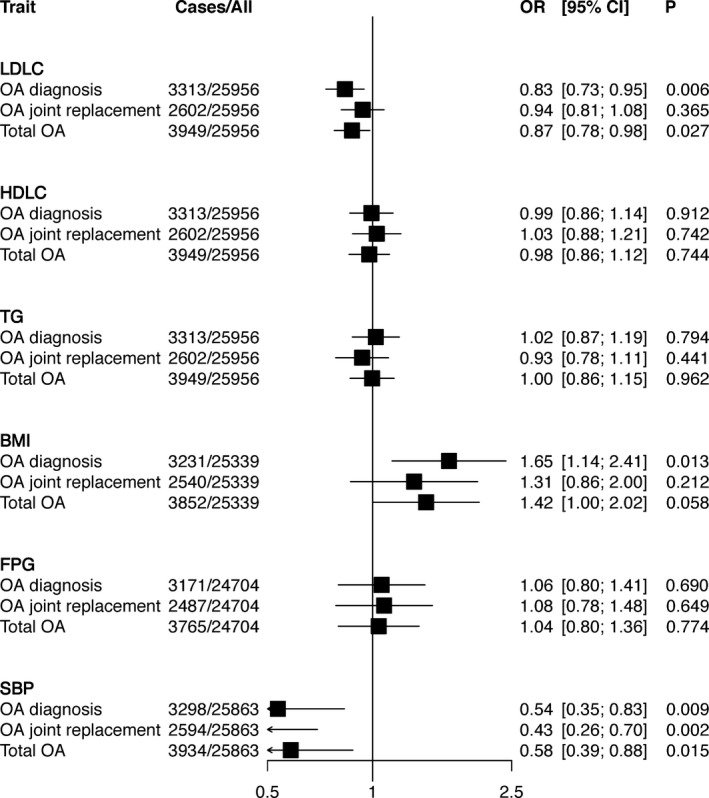Figure 1.

One‐sample conventional Mendelian randomization analyses of genetically predicted elevations in cardiometabolic traits and osteoarthritis (OA) outcomes in the Malmö Diet and Cancer Study (MDCS). The odds ratios (ORs) and 95% confidence intervals (95% CIs) for OA outcomes per genetically predicted 1SD increase in levels of cardiometabolic traits determined using respective polygenic risk scores are shown. Fitted values predicted by the polygenic risk score for each trait were used as predictors of incident OA outcomes in the MDCS in a 2‐stage least squares regression analysis. Genetically predicted elevation in low‐density lipoprotein cholesterol (LDLC) level was associated with a lower risk of OA diagnosis and total OA, genetically predicted elevation in body mass index (BMI) was associated with a higher risk of OA diagnosis, and genetically predicted elevation in systolic blood pressure (SBP) was associated with a lower risk of all OA outcomes. High‐density lipoprotein cholesterol (HDLC) level, triglycerides (TG), and fasting plasma glucose (FPG) were not associated with OA outcomes.
